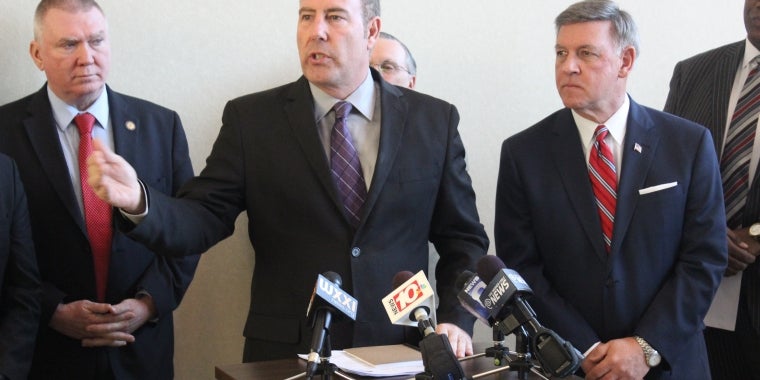
Tax Reductions And Lobbying Reform Highlight New Laws To Take Effect January 1, 2006
A personal income tax reduction that will save New York taxpayers almost $1 billion, an expansion and reform of the state’s lobbying laws, and a measure to bring New York State into compliance with the federal Help America Vote Act (HAVA), highlight the list of new State laws that will take effect on January 1, 2006.
Personal Income Tax Reductions
A tax reduction that will save New York taxpayers nearly $1 billion will go into effect on January 1, 2006. The tax rate for taxpayers with incomes between $150,000 and $500,000 will be decreased from 7.25 percent to 6.85 percent. Similarly, the tax rate for taxpayers with incomes over $500,000 will be decreased from 7.7 percent to 6.85 percent. The reduction is the last portion of a three-year a result of the repeal of the temporary personal income tax surcharge that was imposed in 2003.
Single Sales Factor
A major tax reform that will help New York businesses and help to prevent the outsourcing of jobs, will take effect on January 1, 2006. The single sales factor is expected to save New York businesses $26 million in the coming year and $130 million when fully implemented.
Presently, a corporations taxable State income is based on sales and New York State payrolls and property. Under current law, taxpayers that increase payroll or capital investments in New York incur a higher State income tax liability. As a result, the State’s tax policy encourages job outsourcing, especially in the crucial manufacturing, broadcasting and securities industries.
Under the current law, corporate taxpayers must apportion taxable income and capital to New York State based on a allocation percentage that gives a fifty percent weight to sales, and twenty-five percent each to the level of New York State payrolls and property. The singles sales allocation formula legislation will phased in over a three year period. The first phase requires firms to use an allocation formula applying a sixty percent weight to sales. This will increase to 80 percent in 2007 and 100 percent in 2008.
CAPCO IV High Tech Investments
The fourth round of the New York State Certified Capital Company (CAPCO) program will begin to provide an additional $6 million a year for New York State Life Insurance firms that make investments in technology companies. Thirty-three percent of these funds must be placed in biotechnology and other cutting edge high technology businesses beginning with taxable years starting January 1, 2006.
Lobbying Reform
Beginning January 1, 2006, a new law (Chapter 1, S.5873, Senator George Winner) will go into effect that enacts comprehensive reforms to more effectively regulate the lobbying of government entities. This new law represents the most sweeping reform and overhaul of the State’s lobbying law in generations.
The law curtails lobbying for government contracts, discloses more information about lobbying, provides new penalties for violations of the lobbying law, and establishes an Advisory Council on Municipal Lobbying to advise the state lobby commission on the implementation of the new procurement lobbying provisions.
Help America Vote Act
A new law (Chapter 179, S.5819, Senator John Flanagan) will go into effect on January 1, 2006 to bring New York into compliance with the Help America Vote Act (HAVA). The law will require voters to provide their driver’s license number, or the last four digits of their social security number when registering to vote. Also, first-time voters who registered by mail will have to produce evidence of their identity before voting.
Personal Watercraft Safety
A new law (Chapter 248, S.4129, Senator Dean Skelos) will take effect on January 1, 2006 that will restrict the operation of personal watercraft (PWC) to persons over the age of fourteen who hold a boating safety certificate or are accompanied by a person over the age of eighteen who holds a boating safety certificate.
Today's PWCs can be as long as twelve feet in length, and can be capable of speeds of up to 60 mph. In many cases, youngsters lack the physical height and strength needed to properly handle a PWC. By increasing the minimum age of operation of a PWC, the bill is intended to give children the time to mature both physically and mentally before safely operating a PWC, as well as they are educated on the rules and regulations of the State’s waterways.
The following is a list of all laws enacted during the 2000 through 2004 Legislative Sessions that are scheduled to go into effect on January 1, 2006, in order of: year of enactment and chapter number.


